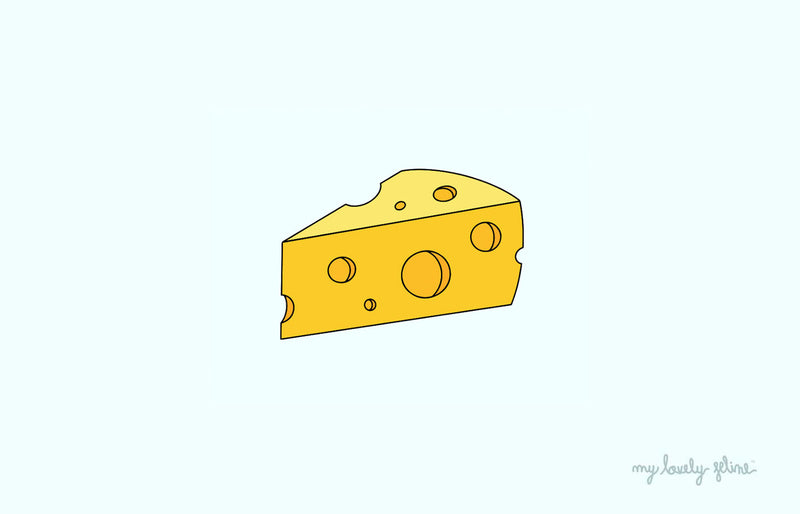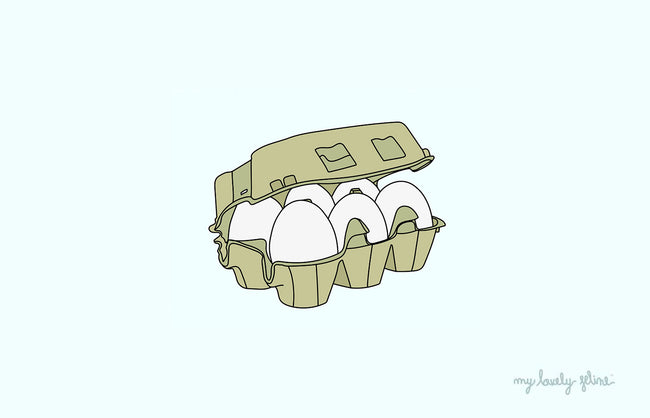|
As a cat lover and cheese enthusiast, you may have wondered if it's safe to share your favorite dairy delight with your feline friend. After all, cats love milk, so it's natural to assume they'd also enjoy cheese. However, the truth about cats and cheese is a bit more complicated than you might think. While some cats can tolerate cheese in small amounts, others may experience digestive issues or even serious health problems if they consume too much. So, before you offer your furry companion a cheesy treat, it's important to understand the risks and benefits of feeding cheese to cats. In this article, we'll explore the science behind cats and dairy, the potential risks of feeding cheese to cats, and some safe and healthy alternatives for treating your feline friend. So, let's dive in and discover the truth about cats and cheese! |
Introducing the debate: Can cats eat cheese?
Cats are obligate carnivores, meaning they require a diet rich in animal protein to thrive. While cats don't need dairy in their diet, many enjoy the taste of milk and cheese. However, just because cats enjoy something doesn't mean it's good for them.
The debate over whether cats can eat cheese is a hot topic among pet owners and veterinarians. Some believe that cheese is a harmless treat that cats can enjoy in moderation, while others warn against feeding cats any dairy products at all.
So, what's the truth? The answer lies in the science behind cats and dairy.
The science behind cheese and cat digestion
Cats produce lactase, an enzyme that helps break down lactose, the sugar found in milk. However, as cats mature and stop nursing, their bodies produce less lactase, making it harder for them to digest dairy. This means that some cats may be lactose intolerant and experience digestive issues if they consume too much dairy.
Additionally, cheese is higher in fat and calories than milk, which can lead to obesity and other health problems if consumed in excess.
While some cats may be able to tolerate small amounts of cheese without any issues, others may experience digestive upset such as diarrhea, vomiting, or gas. In severe cases, consuming too much cheese or other dairy products can lead to pancreatitis, a painful inflammation of the pancreas.
The potential risks of feeding cheese to cats
In addition to digestive issues, feeding cheese to cats can pose other risks. Cheese is a high-calorie food that can contribute to obesity and other health problems if consumed in excess. It's also high in sodium, which can be harmful to cats with high blood pressure or kidney disease.
Some types of cheese, such as blue cheese and feta, contain mold that can be toxic to cats. And, if a cat accidentally ingests cheese with onion or garlic, it can lead to a condition called hemolytic anemia, which can be life-threatening.
The benefits of feeding cats cheese (if any)
While there are potential risks to feeding cheese to cats, there are some potential benefits as well. Cheese is a good source of protein and calcium, which are important nutrients for cats. In small amounts, cheese can be a tasty and nutritious treat for your feline friend.
However, it's important to note that there are other, safer ways to provide your cat with these nutrients. High-quality cat food is formulated to meet all of your cat's nutritional needs, and there are a variety of cat treats available that are specifically designed to be healthy and safe for cats.
Alternative treats for cats
If you're looking for safe and healthy treats to give your cat, there are plenty of options available. Here are a few ideas:
- Freeze-dried meat treats: These treats are made from high-quality animal protein and are free from artificial colors, flavors, and preservatives.
- Catnip: Many cats love the taste and smell of catnip, which can be a fun and healthy treat in moderation.
- Freeze-dried fish treats: These treats are high in protein and low in calories, making them a great option for cats who love seafood.
- Homemade treats: You can make your own cat treats using simple, healthy ingredients like chicken, salmon, or tuna.
Just be sure to avoid any ingredients that are toxic to cats, such as onions, garlic, and chocolate.
How to safely feed your cat cheese (if you choose to)
If you decide to feed your cat cheese, it's important to do so in moderation and with caution. Here are some tips to keep in mind:
- Start small: Introduce cheese to your cat gradually, starting with a small amount and monitoring for any signs of digestive upset.
- Choose the right cheese: Opt for lower-fat, lower-sodium cheeses like mozzarella or cheddar, and avoid cheeses with mold or added ingredients like onion or garlic.
- Use cheese as a treat, not a meal: Cheese should never be a substitute for a balanced, nutritious cat food.
- Monitor your cat's health: Keep an eye on your cat's weight and overall health, and talk to your veterinarian if you have any concerns.
The best types of cheese for cats
If you do decide to feed your cat cheese, it's important to choose the right type. Here are some of the best options:
- Mozzarella: This mild, low-fat cheese is a good source of protein and calcium.
- Cheddar: Another mild, lower-fat cheese that's a good source of protein and calcium.
- Cottage cheese: This soft, low-fat cheese is high in protein and calcium and is often well-tolerated by cats.
- Swiss: This mild, low-sodium cheese is a good source of protein and calcium.
What to do if your cat accidentally eats cheese
If your cat accidentally ingests cheese, don't panic. In most cases, a small amount of cheese is unlikely to cause any serious harm. However, if your cat experiences any symptoms of digestive upset such as vomiting or diarrhea, or if they consume a large amount of cheese or cheese with added ingredients like onion or garlic, it's important to contact your veterinarian right away.
Frequently asked questions about cats and cheese
Can cats be lactose intolerant?
Yes, some cats may be lactose intolerant and experience digestive upset if they consume dairy.
What types of cheese are safe for cats?
Lower-fat, lower-sodium cheeses like mozzarella and cheddar are generally safe for cats in small amounts.
Can cheese be toxic to cats?
Some types of cheese, such as blue cheese and feta, contain mold that can be toxic to cats. Cheese with added ingredients like onion or garlic can also be harmful.
Conclusion: To cheese or not to cheese?
So, can cats safely enjoy cheese? The answer is complicated. While some cats may be able to tolerate small amounts of cheese without any issues, others may experience digestive upset or even serious health problems if they consume too much. And, while cheese does provide some nutritional benefits, there are safer and healthier ways to provide your cat with the nutrients they need.
Ultimately, the decision to feed your cat cheese is up to you. If you do choose to do so, it's important to do it in moderation and with caution, choosing the right type of cheese and monitoring your cat's health closely. And, if you have any concerns, be sure to talk to your veterinarian.




